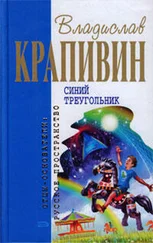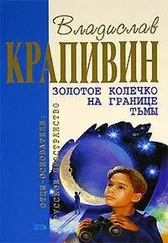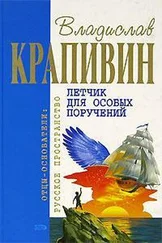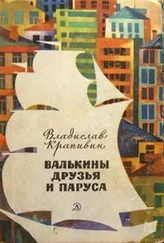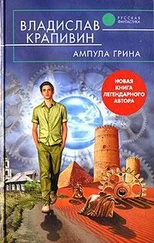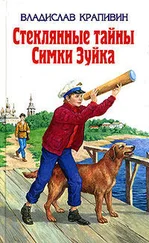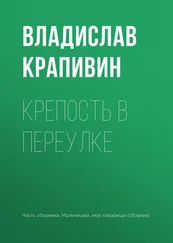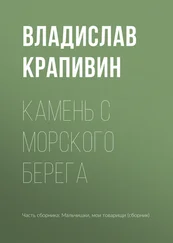Владислав Крапивин - I am going to meet my brother
Здесь есть возможность читать онлайн «Владислав Крапивин - I am going to meet my brother» весь текст электронной книги совершенно бесплатно (целиком полную версию без сокращений). В некоторых случаях можно слушать аудио, скачать через торрент в формате fb2 и присутствует краткое содержание. Город: Moscow, Год выпуска: 1968, Издательство: MIR Publishers, Жанр: Фантастика и фэнтези, на английском языке. Описание произведения, (предисловие) а так же отзывы посетителей доступны на портале библиотеки ЛибКат.
- Название:I am going to meet my brother
- Автор:
- Издательство:MIR Publishers
- Жанр:
- Год:1968
- Город:Moscow
- ISBN:нет данных
- Рейтинг книги:3.5 / 5. Голосов: 2
-
Избранное:Добавить в избранное
- Отзывы:
-
Ваша оценка:
- 80
- 1
- 2
- 3
- 4
- 5
I am going to meet my brother: краткое содержание, описание и аннотация
Предлагаем к чтению аннотацию, описание, краткое содержание или предисловие (зависит от того, что написал сам автор книги «I am going to meet my brother»). Если вы не нашли необходимую информацию о книге — напишите в комментариях, мы постараемся отыскать её.
I am going to meet my brother — читать онлайн бесплатно полную книгу (весь текст) целиком
Ниже представлен текст книги, разбитый по страницам. Система сохранения места последней прочитанной страницы, позволяет с удобством читать онлайн бесплатно книгу «I am going to meet my brother», без необходимости каждый раз заново искать на чём Вы остановились. Поставьте закладку, и сможете в любой момент перейти на страницу, на которой закончили чтение.
Интервал:
Закладка:
I'M GOING TO MEET MY BROTHER
Vladislav Krapivin
Watch for the "Magellan"
Whoever has been to Konsata must remember the steep narrow steps down the cliffs. They start from a colonnade at the top and lead down to the sea. At the bottom there is just a narrow strip of shore between them and the water. Covered with porous rocks and shingle, this strip stretches along the yellow-white cliffs from South Valley right up to the North Point, where the obelisk to dead astronauts pierces the sky like an inclined needle.
It is a pleasant spot to collect the coloured stones rounded and smoothed by the waves, and to hunt for the fierce black crabs. The boys from the school whose grounds lie to the south of Ratal Cosmodrome, always stop here for a while on their way home. They cram their pockets with treasures whose value adults never have understood, and never will, and then run up the steep steps, which they prefer to the escalator that climbs the cliff a hundred yards or so further on.
At the time I'm writing about I had just finished a paper on the third expedition to the Amazon basin. Now for a whole month I could read the ordinary books I had missed from pressure of work.
I would take a book of poems, or a collection of Randin's stories, and go to the top of the Old Steps. The place was deserted. Grass grew between the flag stones and birds had built nests in the scrolls of the heavy capitals.
At first I was all alone at the colonnade, but later a tall dark man wearing a grey jacket of strange cut started coming there. To begin with we took no notice of one another as though by mutual agreement. But as hardly anyone else ever came there, and we were meeting every day, eventually we began to salute though we never spoke to one another. I read and the stranger, who seemed to have something on his mind, was too preoccupied to want to strike up a conversation.
This man always came in the evening. Then the sun hung over North Point, behind which rose the white buildings of Konsata, the blue of the sea was beginning to fade, and the waves were taking on a grey metallic hue. To the east the arches of the old viaduct would be tinted pink by the rays of the evening sun. The viaduct lay at the end of Ratal Cosmodrome, as a memorial of the days when planetary liners had not yet been adapted for vertical takeoff.
The stranger would seat himself on the plinth of one of the columns and, sit there, chin in hand, in silence.
He brightened up only when the schoolboys appeared on the beach. Then he would stand on the top step of the stairway and watch them at play until a fair-haired lad in a black-and-orange striped jacket would spot him and dash up the steps. Each time he would rush at such speed that his striped jacket, which he had flung over his shoulders, would stream out like a gaudy banner.
The gloomy stranger would change visible. He would cheerily meet the boy, and the two of them nodding goodbye to me would go off, discussing their affairs with animation.
At first I thought they were father and son. But one day I heard the boy shouting to someone as he ran: "I'm going to meet my brother."
Later I learnt, from the brothers' conversation, that the elder was called Alexander.
What ensues took place about a week after I first saw Alexander. He came along at the usual time and sat down by a column, whistling a strange and somewhat harsh tune. I was reading, but without much concentration, because I knew Valentine Randin's "Song of the Blue Planet" almost by heart. From time to time I looked up from my book to glance at Alexander and it seemed to me that his face was somehow familiar.
There was a slight breeze. As I was turning the pages of my tattered book a loose page blew away and fluttered over the flags. It came to a stop almost at Alexander's feet. He picked it up and got up to give it to me. I got up as well and met in the middle of the colonnade.
This was the first time I had seen him so close and I found he was younger than I had thought. The wrinkles between his eyebrows gave his features a stern expression, but now he was smiling and the wrinkles had gone.
"Your book isn't very interesting it seems?" he said, giving me the page.
"It's just that I know it so well." I didn't want the conversation to end here, so I remarked, "Your brother's late."
"He was going to be late today, but I had forgotten." We sat down together. Alexander asked me to let him have a look at my book. I was surprised he did not know Randin's short stories, but I said nothing. As he opened the book and laid his palm across the pages to keep them from blowing away, I noticed a white forked scar on the back of it. He caught my glance and said: "It happened out there… on Yellow Rose."
Immediately I recalled everything. "The Snow Planet?" I exclaimed. "Alexander Sneg!" (Sneg-snow.-Tr.)
The unusual broadcasts, and special numbers of magazines with pictures of Sneg and his three companions-were all recent history, and all over the world people had spoken their names with admiration.
Before me I saw a man who had returned to Earth three hundred years after setting out from it. That in itself was not astonishing-after all "Banderilla" and "Mousson" had also been in space for more than two centuries. And though the story of the photon frigate in which Sneg had returned was more unusual than that of the others, I was not thinking of that just then.
"Alexander," I said, feeling I had come up against a strange riddle, "surely three hundred years… and the boy is not more than twelve. How are you his brother?"
"I know you're an archaeologist," said Alexander after a pause. "You must feel time better than others. And understand people. Will you help me if I tell you everything?" "I'll try to help you."
"Only three people, besides myself, know about what I am going to tell you. But they cannot help me. I badly need your advice. Only, where shall I begin? Though really, it all began on these steps."
It all began on these steps.
For the first time since the death of his parents Naal had come down to the seashore. The sea, brilliantly blue and foam-flecked and bordered by the great curve of the white town, was gentle and sunlit, as though no ship had ever perished in its depths.
Naal went down to the water. The nearer he got to the sea, the faster he ran down the steps, until finally he was rushing headlong toward the vast blue expanse with its sparkling spray and salty breeze.
He tripped over a stone and fell. He had not hurt himself badly, so, biting his lip and limping, he continued his descent. Like all boys, Naal believed salt water was the best cure for scratches and grazes, and had kicked off his sandals and was on the point of entering the water when, among the stones that were washed every now and again by the ripples, he saw a big black crab. Involuntarily he jumped back.
It is one thing to give way momentarily to fright, but quite another to be a coward. So in order to test his courage and revenge himself on the crab for his fright, Naal determined to catch the black hermit and throw him far out to sea.
The crab, apparently sensing danger, scuttled off and hid himself among the stones.
"Look out for yourself!" muttered the boy. He was engrossed in the sport and began to turn over a stone.
The flat stone splashed into the water, and the crab, seeing that he had been discovered, scuttled away even faster. But Naal was no longer looking for him. On the wet shingle he had seen a small blue box, round and smooth, like a water-worn stone. Where could it have come from, to be washed up on this shore by the sea?
The boy sat down on the shingle and examined his find. The box was tightly sealed, and Naal spent all of an hour scratching at it with the buckle of his belt before he was able to prize open the lid. Inside, wrapped in an old piece of paper, lay a strange badge: a golden spray with gleaming stars scattered among its leaves. The stem bore the single short word: "Search".
Читать дальшеИнтервал:
Закладка:
Похожие книги на «I am going to meet my brother»
Представляем Вашему вниманию похожие книги на «I am going to meet my brother» списком для выбора. Мы отобрали схожую по названию и смыслу литературу в надежде предоставить читателям больше вариантов отыскать новые, интересные, ещё непрочитанные произведения.
Обсуждение, отзывы о книге «I am going to meet my brother» и просто собственные мнения читателей. Оставьте ваши комментарии, напишите, что Вы думаете о произведении, его смысле или главных героях. Укажите что конкретно понравилось, а что нет, и почему Вы так считаете.

